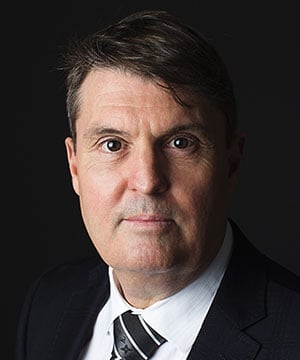Grant title: Enhancing circulatory myokines and extracellular vesicle uptake with targeted exercise in patients with prostate cancer: The MYEX Trial
It is now well-established that exercise is a medicine which produces considerable improvement in quality of life for patients with cancer, decreases the side-effects of curative treatments, and has benefits for body composition, physical function and even mental health.
There are also numerous studies which have shown greatly reduced all-cause and cancer specific mortality in patients who are more physically active and those that have undergone targeted exercise programmes. The next logical step is to gain understanding of the mechanisms by which exercise influences tumour biology to suppress the progression of cancer cells.
We are grateful to World Cancer Research Fund International for supporting our team to investigate signalling molecules called myokines which are released from muscle as a result of exercise to have direct suppression effects on cancer cells as well as mediating the immune system for more effective detection and destruction of cancer cells. With the knowledge gained we will prove that exercise is truly a medicine and an important therapy in overall cancer management. – Prof Robert Newton
Background
Exercise medicine is now accepted as an important therapy in cancer management due to the well-established benefits of improving health-related outcomes with no adverse effects. Being physically active has also been associated with up to 60% better cancer-specific survival for men with prostate cancer.
However, exercise is not universally implemented in cancer care due to limited understanding of the biological mechanisms by which exercise suppresses tumour growth.
Investigating tumour suppressive biological mechanisms is highly important in clinical oncology, as this could expand the application of exercise medicine and further confirm the prescription of exercise as an essential therapy for cancer patients.
In previous work we have demonstrated a 21% growth reduction in prostate cancer cells with the presence of blood obtained after 3–6 months of exercise in patients with prostate cancer compared with their untrained state. This suggests that alteration in circulatory factors within the blood may have an impact on slowing disease progression.
However, exercise is not a single medicine but many different types, and research investigating the effect of different exercise modes on tumour suppression, as well as studies revealing the underlying mechanisms, are required to further emphasise the importance and optimise exercise medicine prescription for cancer management.
Aims and objectives
We are proposing to examine a tumour suppressive mechanism described in our previous work involving skeletal muscle-produced molecules (myokines) and small membranous particles (extracellular vesicles) which transfer a range of substances throughout the body and the effects of exercise mode in patients with prostate cancer.
In addition, we also propose to examine the differential effect of 2 different types of exercise (resistance and aerobic) in EVs and circulating/extracellular vesicle-contained myokines.
How it will be done
We will recruit 32 patients with prostate cancer (16 low-grade and 16 advanced) and provide 2 exercise sessions involving aerobic or resistance exercise in random order. Before, immediately post, and 30 minutes post-exercise, blood will be collected, and the liquid called plasma separated. The concentrations of circulating myokines and skeletal muscle-induced extracellular vesicles will be measured.
The growth suppressive effect and mechanisms of exercise cancer suppression will be experimentally examined by directly applying the collected plasma and extracellular vesicles isolated from the plasma of the exercised patients to living prostate cancer cells.
Potential impact
Through this study we will reveal one of the key underlying mechanisms of how exercise influences tumour growth and whether certain exercise modes are more effective. Once patients and clinicians are aware that exercise is proven to create a more anti-cancer environment in the body, resources, support and motivation to pursue targeted exercise will be greatly enhanced, improving treatment efficacy and ultimately survival.
